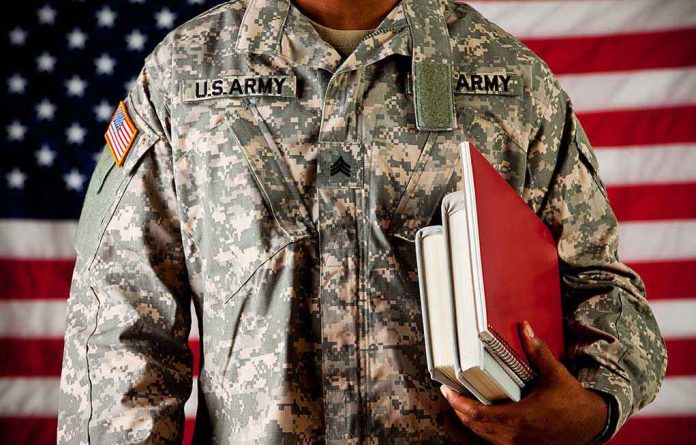
A young Army ROTC cadet lost his life during what should have been routine training at Fort Knox, raising serious questions about military preparedness, safety, and the culture of accountability that has been missing for far too long.
At a Glance
- Army ROTC Cadet Neil Edara, 22, died during land navigation training at Fort Knox on July 24, 2025.
- Immediate medical response was provided, but Edara was pronounced dead shortly after being found unresponsive.
- The Army has launched an official investigation into the circumstances and cause of death.
- Edara’s death highlights ongoing concerns about ROTC training safety and the need for rigorous review of military protocols.
Army ROTC Cadet’s Death at Fort Knox Sparks Investigation
Cadet Neil Edara, a 22-year-old student from Rutgers University, died on July 24, 2025, while participating in a land navigation training exercise at Fort Knox. The incident unfolded during a physically demanding segment of the Army’s ROTC Cadet Summer Training program, which is designed to test the mettle and skills of future officers. According to official statements, Edara became unresponsive during the exercise and, despite immediate on-site medical attention, was pronounced dead soon after. The Army has not yet released the official cause of death, pending a thorough investigation. This loss has sent shockwaves through military and academic communities, especially considering the rarity but seriousness of fatalities during ROTC training.
Edara, hailing from Ridgewood, New Jersey, was known for his commitment to leadership and service, embodying the values expected of America’s future military leaders. The Army Cadet Command, which oversees ROTC training, has expressed condolences to Edara’s family, fellow cadets, and the Rutgers community. The Army’s statement emphasized that a comprehensive investigation is underway to determine all contributing factors. While the Army has protocols in place for land navigation exercises, which are notorious for their physical and mental challenges, this tragic incident is another reminder that even the best-laid plans can fail when accountability and rigorous safety oversight lapse.
Demand for Answers and Accountability Grows
The death of a young cadet during summer training is a gut punch to everyone who believes in the strength and discipline of America’s armed forces. Land navigation exercises, especially at a place like Fort Knox, are meant to build resilience and character, not claim lives. Although fatalities in military training are rare, each one raises major red flags about the adequacy of medical screening, emergency response, and the ever-present risks of heat, exhaustion, and environmental hazards. The Army has promised a complete review of the circumstances surrounding Edara’s death. Yet, families and taxpayers alike are left wondering if bureaucratic complacency and a lack of real-world accountability have become too common in today’s military leadership. The ROTC program, a critical pipeline for future officers, must meet the highest standards—not just in producing leaders, but in protecting them as they train to serve.
While official statements from Rutgers ROTC and Edara’s family remain limited as of July 28, 2025, the demand for transparency and answers is not fading. The Army’s investigation will reportedly focus on training conditions, the sequence of medical response, and any environmental or procedural factors that may have contributed to this tragedy. The story has captured national attention, with many Americans voicing frustration over how the military manages risk and safeguards its own. In a time when common sense and strong values ought to be the bedrock of every institution—from the Pentagon down to the local ROTC office—this incident is a painful reminder of what happens when vigilance slips and priorities blur.
Broader Implications for Military Training and American Values
This tragedy is not just about one cadet, one family, or one university. It’s about the culture of readiness and responsibility in America’s military institutions. ROTC training at Fort Knox has a long history of demanding excellence, but the pressures of modern training—combined with the ever-present risk of bureaucracy and box-checking—leave no room for complacency. As the Army reviews its protocols, every American who cares about the strength and future of our armed forces should pay attention. The incident could prompt changes in how the military screens cadets, manages high-risk training, and responds to emergencies. It’s also a moment for Congress and military leaders to reaffirm that protecting those who volunteer to serve is not just a matter of policy, but of principle. If we can’t get that right, what does that say about the direction of our institutions or the values we claim to defend?
For the families of cadets, the Rutgers community, and the countless parents who entrust their sons and daughters to the ROTC, this is a sobering moment. The Army owes them not just answers, but real changes that put safety and common sense ahead of bureaucratic inertia. Our nation’s future leaders deserve nothing less than a system that values their lives as much as their service. Anything less is an insult to their sacrifice and to the very freedoms we claim to protect.
Sources:
Instagram (Rutgers ROTC community statement)


